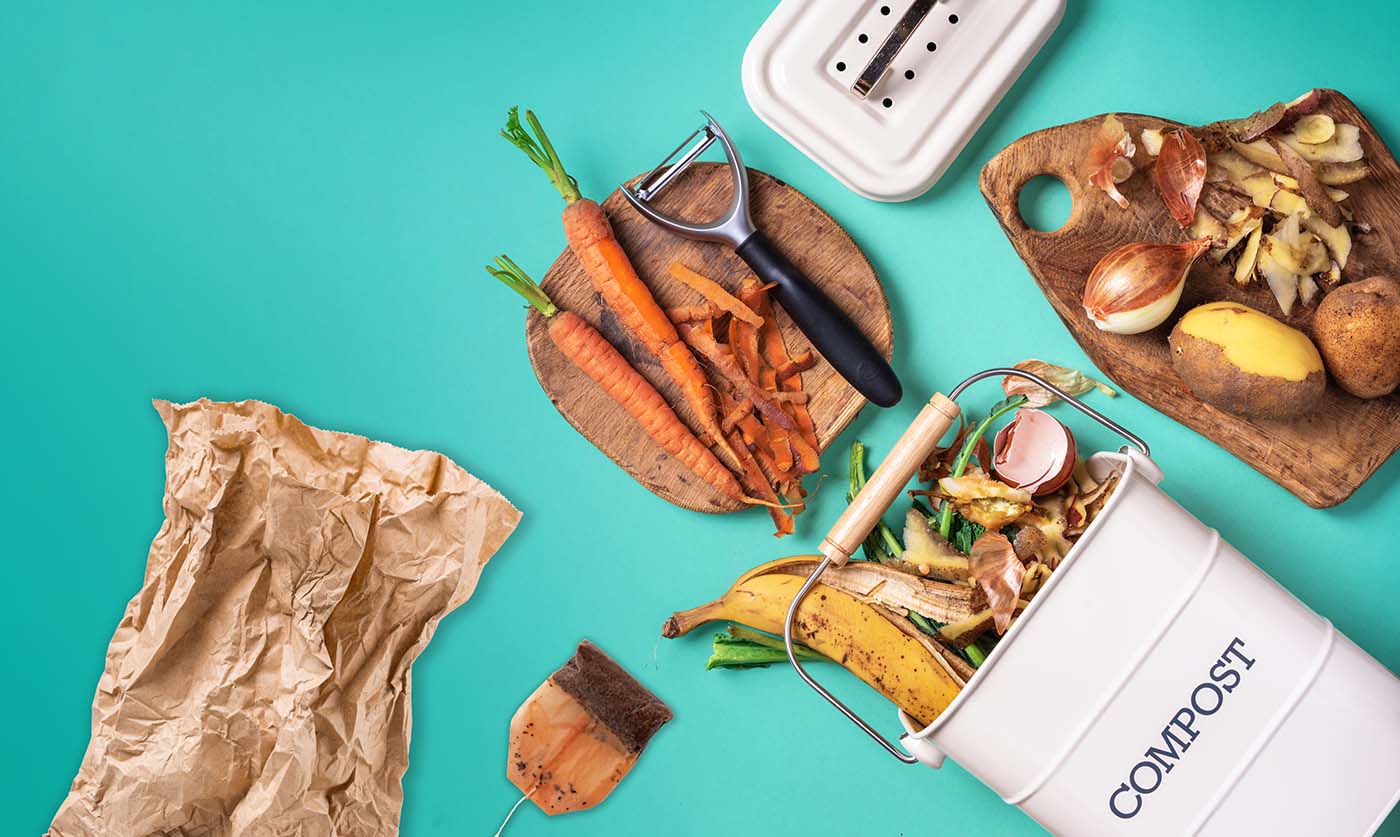
Prenez une grande inspiration et laissez-vous inspirer. Cessons de jeter les peaux de bananes à la poubelle.
Qu’est-ce que le compostage?
Une fois prêt, le compost ressemble à de la terre riche : foncée et friable, avec une odeur terreuse et de petites poches d’air capables d’absorber et de retenir l’humidité. C’est le précieux de tous les jardiniers, si bien qu’on l’appelle l’or noir.
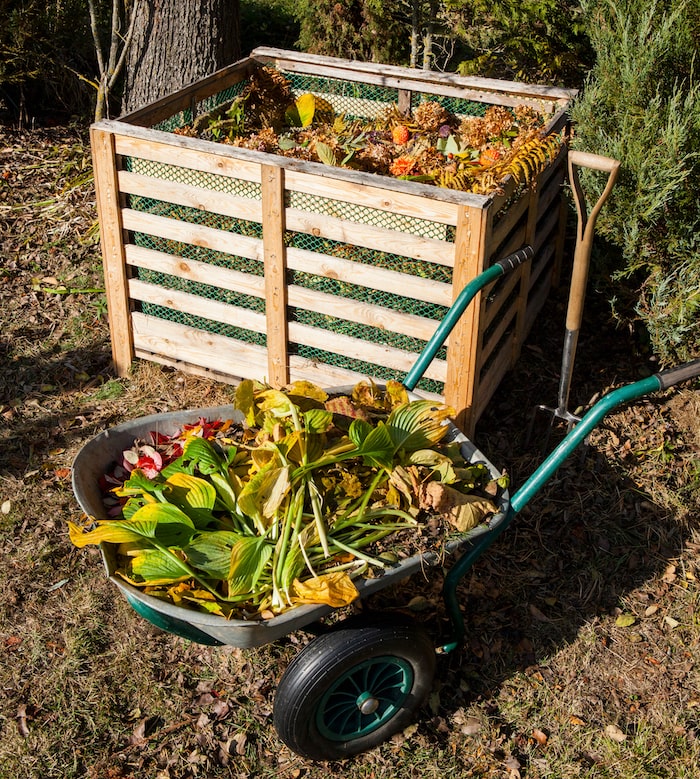
Qu’est-ce qui est compostable?
De manière générale, les déchets d’origine animale, tels que les os ou les restes de viande, peuvent causer toutes sortes de problèmes, notamment le développement de bactéries nuisibles, attirer les insectes ou des maladies, ce qui anéantirait vos efforts. Des centaines d’aliments peuvent enrichir votre compost et le rendre fantastique, mais tout autant peuvent lui nuire.
- Les déjections de bétail présentent des avantages, mais celles de vos animaux de compagnie ne doivent pas être compostées, car elles risquent de contaminer votre compost avec des parasites et des virus.
- Si vous compostez des déchets de jardin ou des branches mortes, vérifiez de quoi ils se composent. Certaines plantes et certains arbres (par exemple le noyer noir) contiennent des substances toxiques qui peuvent ralentir la croissance des jeunes pousses, voire les tuer.
- Le charbon et la cendre de charbon contiennent des substances nuisibles.
- Les plantes malades peuvent transmettre leurs maladies aux nouvelles plantes et les plantes traitées chimiquement peuvent tuer les microbes courageux de votre sol.
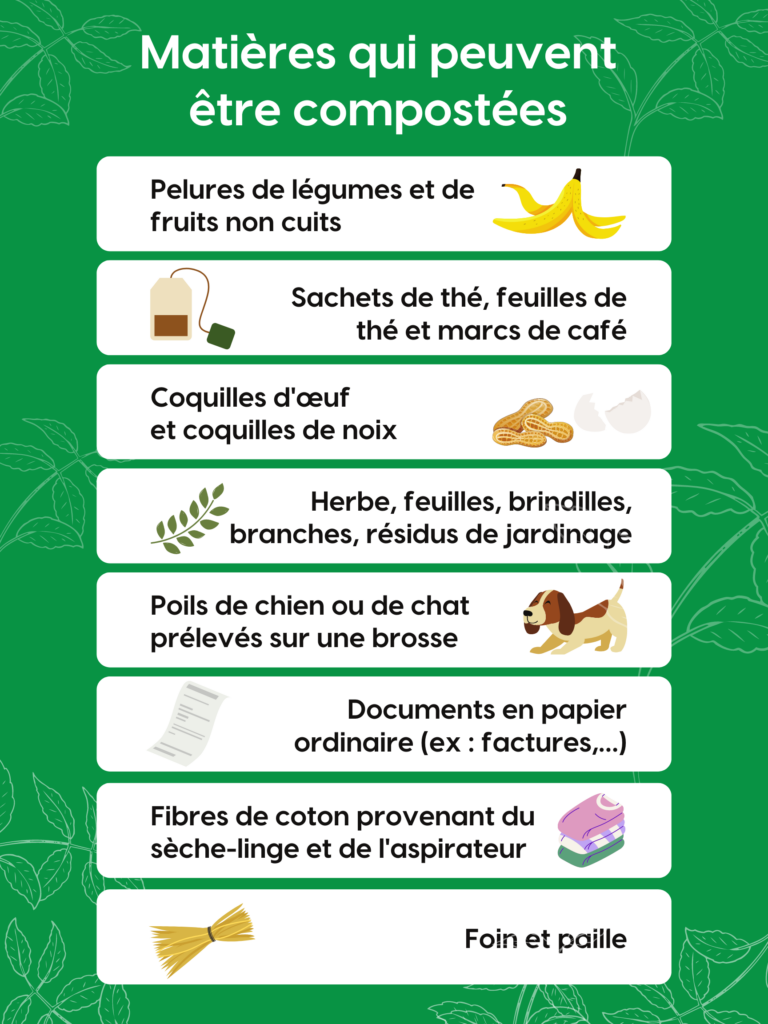
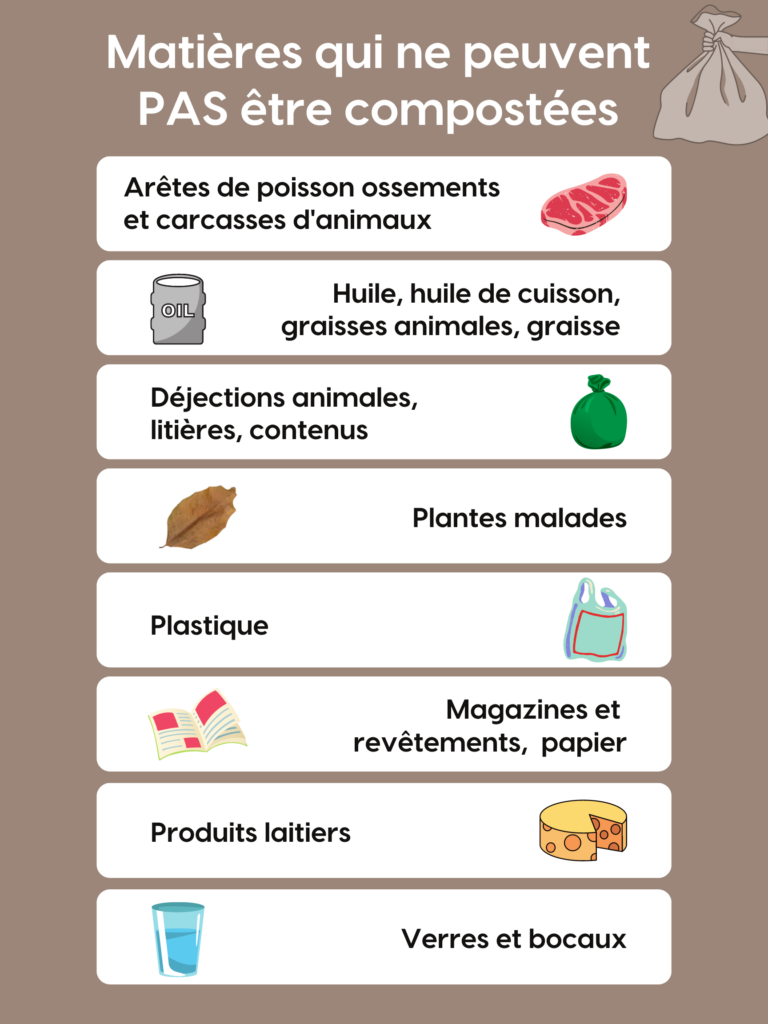
Lorsque vous aurez les bases du compostage, les bons outils et la bonne méthode, votre compost deviendra l’environnement parfait pour les petites mains qui font la terre : les champignons, les bactéries, les vers et autres organismes qui contribuent à la décomposition dans recourir à de vilains produits chimiques. Dans cette macrofaune, certains organismes sont responsables de lancer la première phase de décomposition, d’autres transforment les nutriments en énergie pour les plantes, et d’autres encore contrôlent les autres microbes présents dans le sol.
Les avantages et les inconvénients du compost
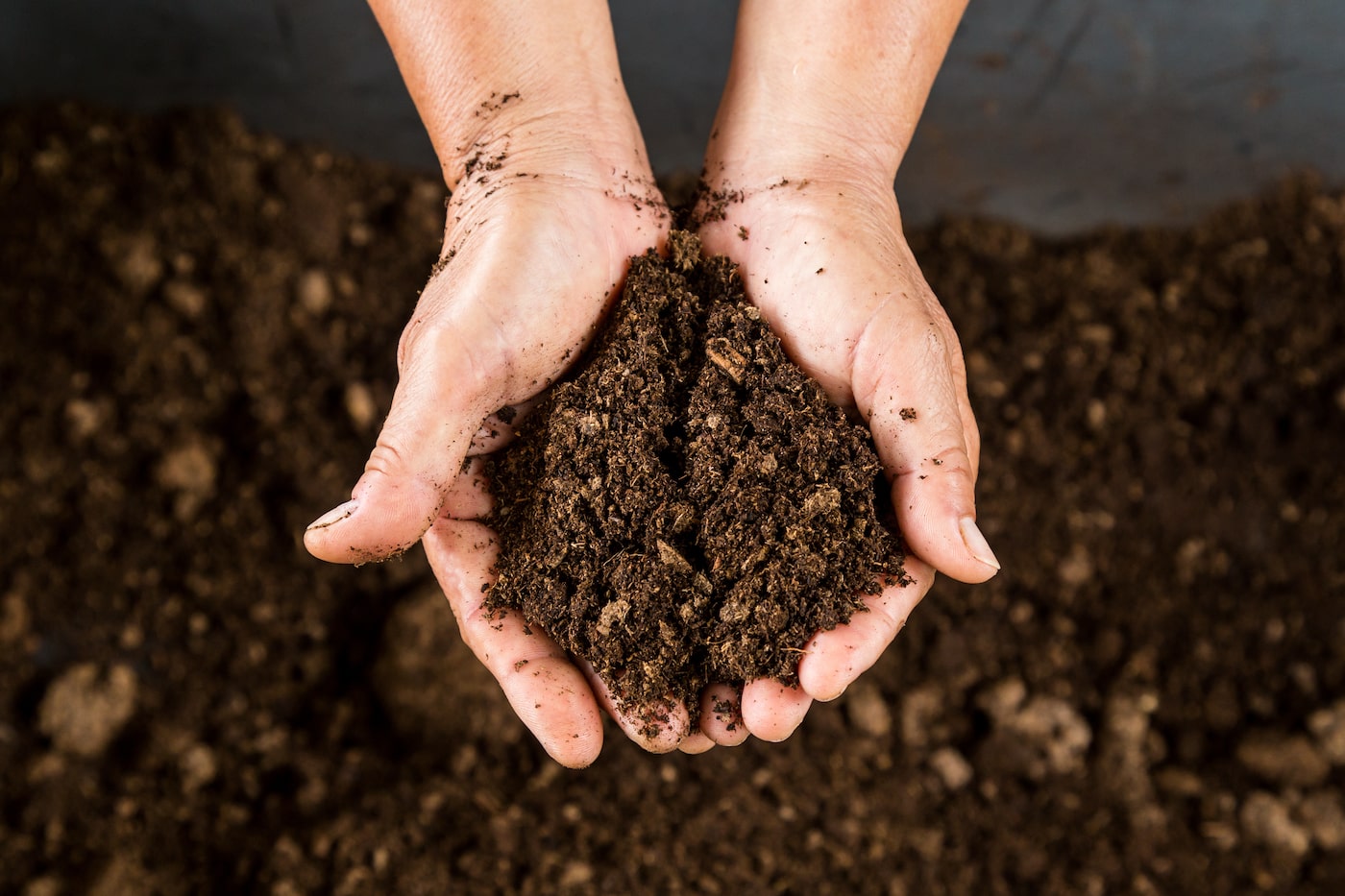
Avantages :
Lorsque tout se passe bien, le compost apporte une montagne de bienfaits. Le sol va adhérer aux particules de compost pour offrir un meilleur environnement aux racines et à son tour leur permettre de s’aventurer plus profondément et d’absorber facilement les nombreux nutriments présents dans le processus décomposition. Pour obtenir un bon compost, on compte sur la dégradation aérobie. C’est le processus de décomposition de la matière par les microorganismes qui ont besoin d’oxygène. Pourquoi est-ce important? Lorsque vous jetez une peau de banane à la poubelle, elle se rend dans une décharge et est ensevelie sous des couches et des couches de déchets. Cette peau de banane ne peut plus recevoir d’oxygène, ce sont donc des organismes qui peuvent vivre sans apport d’oxygène qui la décomposent. C’est la dégradation anaérobie. Vous suivez? Pendant la dégradation anaérobie, les déchets en décomposition relâchent un biogaz néfaste composé de méthane et de dioxyde de carbone. Pour résumer, en compostant correctement vos déchets, vous réduisez votre empreinte carbone et vous encouragez :
- L’oxygénation de l’air
- Une meilleure rétention de l’humidité par le sol
- Des plantes saines et riches en minéraux, car les bactéries contenues dans le sol créent des anticorps utilisés par vos plantations pour lutter contre de nombreuses maladies contenues dans le sol, ce qui leur permet de rester en bonne santé.
- La protection contre les maladies des plantes et les carences en nutriments.
- Un pH équilibré du sol.
- Un moindre recours aux fertilisants chimiques, qui peuvent s’infiltrer dans les nappes phréatiques et se retrouver dans l’alimentation.
- Une meilleure production de microbes, de bonnes bactéries et de champignons.
- La réduction des émissions de méthane par les décharges
Si le compost n’est pas réalisé correctement, votre jardin sera peut-être plus joli que celui des voisins, mais votre pile de compost risque de répandre une terrible odeur et des agents pathogènes. Heureusement, vous êtes un génie, et vous avez ce guide détaillé pour éviter la catastrophe. 😉
Au cours du processus de décomposition, les bactéries et les champignons décomposent les déchets verts en ammonium.
Les bactéries contenues dans le sol transforment l’ammonium en nitrite, qui se transforme en nitrate, puis en azote. Pour que le compost soit utile, il doit passer par toutes ces étapes. Mais tout l’ammonium qui demeure tel quel peut transformer votre compost en une matière malodorante déséquilibrée, inutile, voire dangereuse.